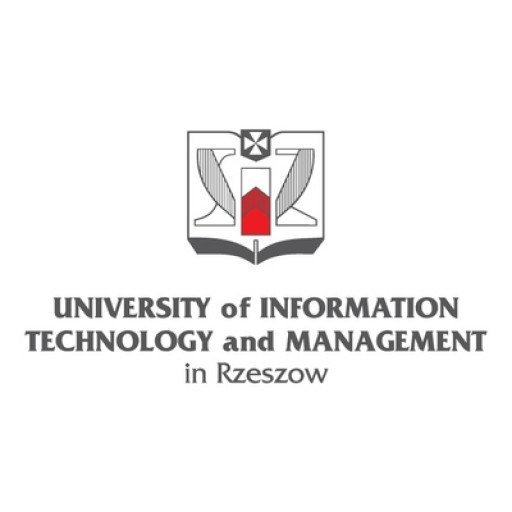The Bachelor of Aviation Management at Swinburne University of Technology is a comprehensive undergraduate program designed to prepare students for a successful career in the dynamic and evolving aviation industry. This program provides students with a solid foundation in aviation principles, business management, and operational practices, equipping graduates with the necessary skills to navigate the complexities of the global aviation sector. Throughout the course, students will explore key areas such as aviation safety, air transportation management, airline operations, airport planning and management, logistics, and aviation law. The curriculum integrates theoretical knowledge with practical experiences, including industry placements and simulations, to ensure graduates are ready to meet the demands of aviation organizations worldwide. Swinburne's state-of-the-art facilities, industry partnerships, and dedicated faculty members foster a learning environment that encourages innovation, critical thinking, and leadership. Students will also develop strong communication, teamwork, and problem-solving skills essential for effective management in multidisciplinary teams. The program is suitable for individuals passionate about aviation and seeking to contribute to the growth and safety of air travel. Graduates of this degree can pursue careers in airline management, airport operations, aviation consultancy, logistics coordination, and other roles within the aviation and transportation sectors. With an emphasis on industry relevance and global perspectives, the Bachelor of Aviation Management at Swinburne prepares students to become future leaders and managers capable of making a positive impact in the aviation industry worldwide.
The Bachelor of Aviation Management at Swinburne University of Technology is a comprehensive program designed to prepare students for dynamic careers within the aviation industry. This degree combines theoretical knowledge with practical skills, equipping graduates to manage and oversee various aspects of aviation operations effectively. Throughout the course, students explore a wide range of topics including aviation safety, aviation law, airport management, airline operations, and air traffic control. The curriculum emphasizes leadership and decision-making skills, critical thinking, and strategic planning, preparing students to tackle the complex challenges faced by the aviation sector today.
In addition to core aviation subjects, students undertake business management courses to understand organizational behavior, financial management, and marketing strategies tailored specifically for the aviation context. Practical experience is a key component of the program, with opportunities for internships, industry projects, and hands-on training in simulated environments. These experiences aim to bridge the gap between theoretical concepts and real-world application, giving students valuable insights into operational procedures and industry standards.
The program also offers specializations and electives that allow students to tailor their learning to specific interests such as airport management, airline operations, or aviation safety. Collaboration with industry partners and expert faculty members ensures that the curriculum remains current with industry trends and technological advancements. Graduates of the Bachelor of Aviation Management will be well-equipped to pursue careers in airline companies, airport authorities, aviation consulting firms, regulatory agencies, and other related organizations. The program aims to develop well-rounded professionals who can contribute to the safety, efficiency, and innovation of the global aviation industry.
- Year 12 or equivalent
- VCE prerequisites: Units 3 and 4: a minimum study score of 25 in English (or equivalent) or 30 in English (EAL)
- And Components 4 and 3: a minimum study score of 20 in virtually any Mathematics. Additional performance criteria and prerequisite requirements can also apply. English language requirements - satisfactory conclusion of one of the following: Swinburne's English for Academic Purposes (EAP 5 high level) with overall 65%, all skills 65 percent
- Minimum IELTS overall band of 6.0 (Academic Module) with no single band below 6.0
- TOEFL iBT (web-based ) minimum score of 75 using a reading ring no less than 18 and writing ring no less than 20
- Pearson (PTE) minimum score of 50 (no real skills significantly less than 50)
- Any other equivalent assessment of English language proficiency.
The Bachelor of Aviation Management at Swinburne University of Technology offers various financing options to assist students in funding their studies. International students are required to pay tuition fees, which can be paid upfront or through installment plans, depending on the university's policies and the student's preferences. Domestic students may access government loans and support schemes such as HELP (Higher Education Loan Program), which allows eligible students to defer tuition fees until they are earning a sufficient income after graduation. The university also provides scholarship opportunities for both domestic and international students based on academic merit, leadership qualities, or financial need, which can significantly reduce the financial burden of studying. Additional funding options include external scholarships from industry partners, aviation-related organizations, and government bodies that support students pursuing careers in aviation management. Swinburne University also offers payment plans that enable students to spread out their tuition costs over the duration of the program, making it more manageable to finance their education. Students are encouraged to explore financial planning and budgeting resources provided by the university to ensure they can meet ongoing costs such as tuition, books, accommodation, and personal expenses. The university’s comprehensive support services include financial counseling to help students understand their options and develop strategies to cover their studies effectively. Graduates of the program often find employment with airlines, airports, and aviation companies, which can provide financial stability and career advancement prospects, further easing the financial aspect of their education. Overall, Swinburne University is committed to providing accessible education through a variety of financial solutions designed to support students throughout their academic journey in aviation management.
The Bachelor of Aviation Management at Swinburne University of Technology provides students with a comprehensive education in the operational, managerial, and strategic aspects of the aviation industry. This program combines core business and management principles with specialized aviation knowledge, preparing graduates for diverse roles within the aviation sector, including airline management, airport operations, aviation safety, and policy development. Throughout the course, students gain practical skills through industry placements, internships, and project work tailored to the aviation environment. The curriculum covers key topics such as airline operations, air traffic management, aviation safety and security, aircraft maintenance management, and aviation law and regulation. Students also develop critical skills in leadership, problem-solving, and effective communication to excel in dynamic and complex aviation settings. The program is designed with input from industry partners to ensure that graduates are well-equipped to meet current and future challenges facing the aviation industry. Swinburne's strong focus on technology and innovation is reflected in the program, incorporating the latest developments in aviation technology, data analytics, and sustainable practices. The university's state-of-the-art facilities include simulation labs and aviation-specific learning environments. Upon graduation, students are prepared for careers in airline management, airport operations, aviation consultancy, and regulatory agencies. The program also offers pathways for further study, including postgraduate qualifications in aviation management and related fields. Overall, the Bachelor of Aviation Management at Swinburne aims to develop highly competent professionals capable of contributing to the safe, efficient, and sustainable growth of the global aviation industry.









